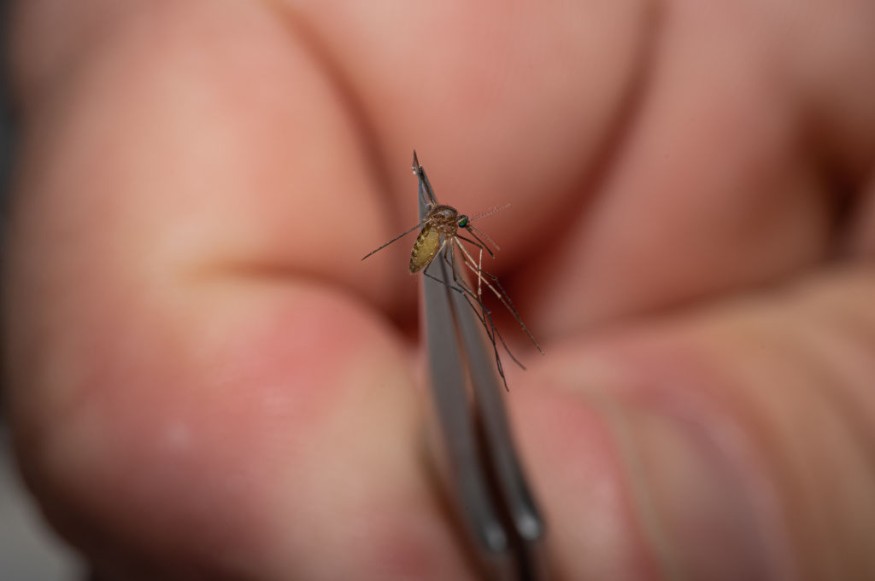
Mosquitoes are getting more dangerous and causing more deaths in humans as climate change continues to affect the world's ecosystems.
Mosquitoes and Mosquito-Borne Diseases
Climate change and global warming are benefiting mosquitoes mainly because they thrive in warmer, wetter conditions.
Experts are observing mosquitoes to be growing larger, and living longer, ehich is helping the deadly insects to increase their disease-spreading potential as the areas where they thrive, wetter and warmer, are also expanding.
Mosquitoes transmit diseases like dengue fever, Zika, yellow fever, chikungunya, malaria, and West Nile virus, passing them from person to person via itchy mosquito bites.
Experts worry that rising global temperatures brought on by climate change will create more ideal breeding grounds for mosquitoes in new regions.
As mosquitoes expand their range, they can carry diseases to previously unaffected areas, posing a growing health threat.
Warmer, humid climates may become the norm because of climate change, enabling these disease vectors to flourish and further impacting global public health.
Climate Change and Better Environments for Mosquitoes
Climate change, a worldwide pressing issue, brings higher temperatures, extreme weather, and flooding. These conditions foster larger and long-lived mosquito populations.
Dr. Photini Sinnis, Deputy Director of Johns Hopkins Malaria Research Institute, emphasizes humidity as crucial for mosquitoes and their longevity.
Greenhouse gases trap heat, raising Earth's temperatures, increasing water evaporation from land sources, and causing warmer air to hold more water vapor.
This creates a feedback loop, making water vapor the most abundant greenhouse gas.
Increased water vapor fuels extreme weather events like hurricanes and floods.
Recent data shows an average of 18 severe weather events annually in the past five years, up from 13 per year in the previous decade.
Major storms can create breeding grounds for mosquitoes in rainwater collected in containers.
Female mosquitoes transmit diseases like dengue, yellow fever, chikungunya, and Zika, and can thrive in urban areas with warm and humid conditions.
Dengue Fever: The Bone-Breaking Disease
In the past two decades, the US has seen dengue fever outbreaks, often in isolated clusters linked to international travel. Locally acquired cases are concerning, indicating potential virus spread where it shouldn't be.
This year, over 500 travel-related and 433 locally acquired dengue cases have been reported, with over 2,200 cases last year.
Dengue, known as the "bone-breaking disease," causes severe joint and muscle pain, fever, headache, and rash, resolving in most cases.
However, it can turn fatal in less than 1% of cases, leading to bleeding and organ failure.
Yellow Fever, Chikungunya, and Zika
Yellow fever, which causes jaundice, is a risk in 40 countries, mainly in Africa and Central to South America but not in the US.
The US is at modest risk from the less well-known chikungunya virus, which is found in 115 nations. Although it is extremely unusual to be fatal, it can induce excruciating arthritis pain.
Zika virus can cause microcephaly when passed from pregnant mother to baby. Only 1 in 5 infected show symptoms and experts say that severe outcomes are rare.
Aedes mosquitoes, like Aedes aegypti and Aedes albopictus, become carriers when they bite an infected person.
The virus replicates in their system, eventually reaching salivary glands.
When they bite again, the virus enters the new host's bloodstream. Southern states like Florida and Georgia are at higher risk for Aedes-transmitted diseases.
Inaction on climate change could put 89.9% of the global population at risk of dengue by 2080. Concerns also arise about Anopheles mosquitoes, which carry malaria.
Malaria
In the US, cases of malaria, transmitted by disease-bearing mosquitoes, occasionally occur, with recent cases in Florida, Texas, and Maryland.
Climate change is expanding the mosquito's range. Malaria cases in the US are primarily linked to international travel to areas with local transmission.
Malaria is unlikely to become a major issue in the US, as it lacks the necessary factors for intense transmission seen in Sub-Saharan Africa and Asia, according to Sinnis.
Battling Mosquitoes
Bed nets and insecticides from the past are no longer effective since mosquitoes have developed the ability to withstand and avoid them. The globe needs strategies for battling mosquitoes.
Scientists from all over the world have been looking at different methods that can be used against mosquitoes.
While some venture into disarming female mosquitoes with sterile mates, some are looking into attacking the insect's sense of smell.
Related Article : Dengue in Florida Nearing 200 Cases This Year with 10 Not From State
© 2026 NatureWorldNews.com All rights reserved. Do not reproduce without permission.





